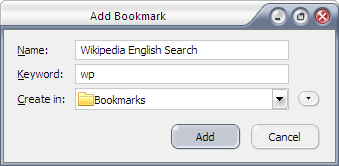Here's a hypothetical situation that is all too real: A employee has in impeccable record on paper--graduated from Stanford, interned at all the big-name companies, years of experience in key projects at well-known places, both big and small, and a very smooth interviewer, and seems extremely engaged and excited about the job. S/he is hired, and turns out to be a total slacker. He voluntarily leaves 6 months later, and takes a cushy post at another company, with good references from his two friends he made while in the current company. Lather, rinse, repeat.
This is really something to look at in the hiring process. If a company were to spend tens of thousands of dollars on some new servers, the people in IT would probably look into reviews of the servers in forums, written by current and past users, and more than just one or two firsthand accounts of how well the server functions. The IT people probably would not base the decision on the marketing brochures from the selling company and a cursory demo of the platform.
So why is hiring people any different? Hiring a qualified engineer, business development person, or marketer in the Valley will probably cost you at the minimum $70,000 a year, and can often break $120,000 a year, and yet many hiring managers never make a call to even a candidate's listed references, much less random co-workers. This problem is even more apparent in positions that are temporary or have a short hiring process, when there isn't enough time to check references, or when there isn't a good system for contacting past references.
Stanford's Residential Education (ResEd) system is a good example of this. Residential staff, especially freshman residential staff plays a huge role in shaping the lives of all Stanford undergraduates, and upperclassmen who have already been staff for a year usually are preferred over those who have not, yet there isn't a set system in place for references. The staff member's residents over the past year would be a perfect source of information about the candidate, yet there is a stigma against contacting them, resulting in bad candidates being rehired year after year.
When a draft of a scientific paper is sent to a prestigious journal for publication, the authors (and eventual readers or the journal) expect that the article will undergo double-blind peer review by several other scholars in their field. This ensures that the final published article will be legitimate and have at least a backing of several people in the field. While double-blind reference calling may be difficult, why is there such a stigma against calling random people with which the candidate interacts? The standard system of references is inherently flawed because the candidate provides the names. It's as if you were to ask Microsoft if Windows is secure.









